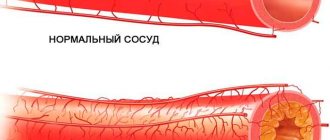Whatever this human condition is called: delirium tremens, alcoholic psychosis, alcoholic delirium, “squirrel”. The names may be very different, but in fact it is the same psychosis, which is associated with the abuse of alcohol-containing drinks.
Most often, alcoholic psychosis develops in people who suffer from chronic alcoholism of the second or third stage, after a long period of heavy drinking. However, alcoholic psychosis can also develop in a person who does not suffer from alcoholism, but who has been drinking alcohol or its substitutes in large quantities for a long time. Those who once suffered diseases of the nervous system or traumatic brain injuries are also at risk. If a person has previously suffered from delirium tremens , acute alcoholic psychosis may recur even after a small portion of alcohol.
We immediately hasten to dispel a very popular myth that is associated with delirium tremens. Many people believe that alcoholic psychosis develops during a binge, when a person is heavily intoxicated. This is a myth, and in this case people confuse delirium tremens with the altered state that an alcoholic is in.
Acute alcoholic psychosis, delirium develops only 2-5 days AFTER stopping alcohol intake. Those. Delirium tremens is a manifestation of severe withdrawal syndrome, which occurs when a sharp refusal of the usual doses of alcohol.
Symptoms of delirium tremens
In order to correctly respond to the onset of alcoholic delirium, you need to recognize it by the first symptoms.
First of all, the patient experiences sudden mood swings. He may be agitated, irritable, and then suddenly become calm. Hallucinations appear.
In most cases, delirium tremens occurs at night, reaching its highest point in the morning. Then the person’s condition stabilizes a little. Often after this the person begins to realize that he is sick.
The symptoms do not end there, as they return again in the evening. Delirium tremens can last for several days. Just before the attack, anxiety and irritability reappear. During the entire illness, the patient either cannot fall asleep at all, or falls asleep in short-term restless sleep.
Signs of delirium tremens can also be various vegetative disorders. The patient may experience increased sweating. The skin of the face turns red, the eyes become bloodshot. Increased pulsation and increased blood pressure are also observed.
Symptoms
It is important to notice in time the moment of the onset of delirium tremens, otherwise if the attack enters the acute phase, then in this state it can be very difficult to stop the patient, panic sets in.
People who are at home with such a person at this time do not know what to do, where to call and who to call. You can expect the appearance of alcoholic delirium in those who have stages 2 and 3 of alcoholism:
- Stage 2: alcohol is consumed daily, irreversible changes have occurred in the organs, resistance to alcohol has appeared, increasingly larger dosages are required. The patient’s character changes, he becomes conflicted, psychopathy progresses, signs of schizophrenia appear, obsessive states haunt him, he constantly suspects someone;
- Stage 3: a state of intoxication occurs, even if not much has been drunk, the destruction of organs has reached critical limits, epileptic seizures are likely, dependence on alcohol completely destroys a person’s personality. Atrophic changes occur in the patient’s brain, provoking frequent attacks of delirium tremens.
During the third stage of alcoholism, atrophic changes occur in the patient’s brain, provoking frequent attacks of delirium tremens
The first sign that you should be wary of when it occurs is a sudden refusal of alcohol. This happens about a day or two before an impending attack of delirium tremens. The person not only does not drink, but also has an aversion to alcohol.
Later the following symptoms appear:
- excessive agitation and mood swings: the patient constantly moves, worries, talks a lot, begins to do strange things;
- tremor of hands and feet;
- a person cannot fall asleep, and if he does fall asleep, he soon awakens from nightmares.
Possible complications
If the patient has been drinking strong drinks for a long time, then delirium tremens may be accompanied by all sorts of complications. The likelihood of this increases if surrogates were used instead of ethyl alcohol, or if the patient has a traumatic brain injury.
Just before the onset of delirium, patients experience nausea, which can lead to vomiting, and headache. The person cannot speak coherently, he is restless and sometimes even aggressive.
Everything is further complicated by the fact that the patient experiences convulsions and hyperthermia. If the impairment of consciousness worsens, this indicates that there is a risk to life. This condition can lead to the patient falling into a coma.
In addition, autonomic disorders may be even more pronounced. For example, blood pressure may drop sharply, and the patient may experience arrhythmia.
Content:
- Delirium tremens: when and how it occurs
- Delirium tremens: symptoms
- Classification
- Alcohol delirium: consequences
- “Squirrel”: what treatment
Alcoholism
is a serious disease that affects all human organs and systems, including the nervous system. Long-term intoxication with ethyl alcohol often leads to the formation of severe mental disorders. One of them is delirium tremens or delirium tremens.
First aid for delirium tremens
If you are near a person who has the first signs of delirium tremens, you must first call an ambulance, and before they arrive you must:
- Place the patient on a flat and, as soft as possible, surface and ensure that he remains still.
- Give the patient plenty of fluids to avoid further dehydration.
- If the patient feels unwell, apply a cold compress to his forehead. Showering under cold water will also be helpful.
Treatment
If the symptoms of delirium tremens are not too acute and the patient is not violent (reduced or atypical mixed delirium), then you can try to treat this condition at home.
- The first thing to do is to ensure normal, restful sleep. In hospitals, tranquilizers such as Relanium or Phenazipam are used, in some cases Diphenhydramine or Piracetam. Drugs are also infused to detoxify the body and prevent dehydration. You can do this at home using mineral water or pharmaceutical powders, such as Regidron.
- After sedatives, the patient should be allowed to sleep. If after sleep the symptoms of delirium tremens have subsided, then you should not relax. It is important to carry out active detoxification therapy (removing alcohol breakdown products from the body) throughout the entire period, as well as monitor temperature and blood pressure. Since the treatment is carried out at home and infusion solutions are not available, a large amount of mineral water together with diuretics will save the situation.
- Enterosgel absorbent is also useful for detoxification after delirium tremens. It will cleanse the patient’s intestines of toxins, which will allow beneficial substances to be actively absorbed.
- In addition, it is important to establish regular nutrition and replenish vitamin deficiencies. It is necessary to introduce into the diet of a sick person foods rich in potassium (beets, pumpkin, tomatoes, carrots, bananas, oranges, dried apricots, raisins) and magnesium (bananas, apricots, beans, cottage cheese, kefir, buckwheat). It is these elements that support the functioning of the heart muscle. Honey is useful during this period as a source of glucose and trace elements.
- Also, during treatment at home, the patient must additionally take pharmaceutical preparations with potassium, magnesium, vitamin C, B1, B6 and PP.
For detoxification after delirium tremens, the absorbent Enterosgel will be useful, which will cleanse the intestines of toxins
When the symptoms of delirium tremens are relieved, a person begins to experience severe depression, apathy, and increased nervousness—alcohol dependence is too strong. During this period, you can use antidepressants, for example Fluanxol, which begins to act as early as 2-3 days. But it is dangerous to treat anyone with such drugs at home without consulting a doctor, so it is better to use herbal remedies.
Hospitalization
To help the patient cope with delirium more easily, you need to try to calm him down. In addition, you need to do everything so that he gets at least a little sleep. The first sign that the disease is going away is a quiet, long sleep.
If the patient’s condition has not improved within twenty-four hours, there is no need to try to cope with the disorder on your own, at home. It is urgent to call an ambulance and hospitalize the patient. In a specialized clinic, all conditions have been created to quickly bring the patient to a normal state, and experienced specialists will monitor this.
Drinking alcoholic beverages can lead to irreversible consequences, and if a person experiences delirium delirium, an urgent need to seek medical help.
If the patient does not get better, and the symptoms of alcoholic delirium become more and more pronounced, then it will be possible to cope with the disease only in a hospital setting. It is urgent to admit the patient to the clinic, even if he is categorically against it.
If you delay in treating delirium tremens, the consequences can be irreversible and even lead to death. The need for hospitalization also arises because, under the influence of hallucinations, a person becomes incredibly aggressive, and since he is divorced from reality, he is not aware of his behavior.
Therefore, the patient can be dangerous both to himself (very often the patient tries to commit suicide) and to others (by fighting an invisible enemy, he can cause injury to others).
Call us now:
+7 (812) 454-00-50
Prices for Ultramed clinic services
Attack
The condition of delirium tremens itself can last about 2-5 days. Worsening occurs in the evening, the peak of exacerbation occurs at night.
The acute phase of delirium tremens can be recognized by the following signs:
- the person has poor coordination, brushes off someone, runs away, shakes something off, rushes from side to side, scolds someone - that is, he is completely abstracted from the world around him and sees only terrible pictures from his subconscious;
- does not recognize anyone, but is sometimes able to identify himself: he accurately states his full name and address;
- increased body temperature, fever, trembling of extremities;
- severe dehydration;
- yellowed whites of the patient's eyes, pale skin or excessive redness.
Treatment of alcoholic delirium
Therapy is carried out with the aim of improving both the physical and mental condition of the patient. To do this, he is prescribed psychotropic substances and undergoes a detoxification procedure, which helps cleanse the body of toxic substances.
In addition, infusions are carried out containing drugs that restore water-salt balance and vitamins. All this helps to normalize the activity of organs that have suffered from such a serious illness. Delirium tremens disrupts the functioning of the cardiovascular system, liver, and kidneys.
You cannot prescribe medications to a sick person yourself; instead of being beneficial, this can lead to serious complications. Only a narcologist can prescribe drugs, who will select the drug needed for a particular case and the dosage of its consumption. This will allow the patient to get rid of hallucinations and prevent the toxic effect on the brain. The patient will remain in the clinic until the symptoms of alcoholic delirium completely disappear, and this may take several days, and sometimes even longer.
Literature:
- Alcoholic delirium and delirious-oneiric psychoses of complex structure [Text] / K.G. Danielyan. - Yerevan: Hayastan, 1977. - 132 p.
- Clinic and treatment of alcoholic delirium: Method. recommendations / Ministry of Health of the RSFSR; [Comp. A.G. Goffman, V.I. Begunov and V.P. Diaghilev]. — Moscow: [b. i.], 1978. - 34 p.
- Delirium tremens: (Clinic and some issues of pathogenesis) / M. G. Gulyamov, I. R. Khasanov, V. F. Kolomiets; Ed. and with a preface. G. V. Morozova. — 2nd revision. and additional ed. - Dushanbe: Irfon, 1982. - 175 p.
Need some advice?
OR CALL A DOCTOR
CALL!
+7
Forms
Delirium tremens, depending on the severity of the consequences, is divided into several forms:
- Classic. Begins in the midst of withdrawal symptoms. Lasts 3-5 days, sometimes 7-10 days. The attack ends with apathy and a decrease in emotional background.
- Lucid, in which the patient’s feelings of fear and anxiety increase, and coordination of movements is impaired. There are no delusions or hallucinations.
- Auditory, with a predominance of verbal illusions.
- Abortive, in which fictitious auditory and visual images appear in fragments. Delusional thoughts are not yet fully formed, anxiety is growing.
- Fantastic, with clouding of consciousness, disorder of self-awareness, depressive and manic affect.
- Heavy. It occurs against a background of weakening of the body and has an extremely unfavorable prognosis. It can develop into Gaye-Wernicke syndrome and provoke organic changes.
Causes
The only reason for the development of delirium tremens (popularly “squirrels”) is prolonged, long-term consumption of alcohol, accompanied by ongoing intoxication of the body. As a result, a disorder of mental and electro-biochemical processes in the brain occurs. However, delirium tremens can develop not only in an avid alcoholic, but also in a person who does not suffer from addiction. In this case, the disorder can be provoked by:
- significant doses of alcohol;
- consumption of alcohol-containing surrogate products;
- simultaneous use of different psychoactive drugs;
- drinking alcohol by a person suffering from mental illness.
The chronic form of alcoholism is a serious illness accompanied by regular use of substances containing alcohol, with the emergence of psychophysical stable dependence. With this disease, irreversible changes occur in the internal organs. We can say that the process of decomposition of the body and personality in this case is incurable.
Disease stage
Alcoholic delirium is an acute psychosis characterized by a severe disorder of a person’s consciousness, with the presence of visual or auditory hallucinations
Alcoholic delirium is an acute psychosis characterized by a severe disorder of a person’s consciousness, with the presence of visual or auditory hallucinations, disturbances in temporal space, the appearance of fear, anxiety, delirium and inexplicable aggression. The disease occurs 2-4 days after the end of the binge drinking process, however, there are situations when delirium develops during a period of continuous alcohol consumption. Most often, delirium tremens occurs in sober people; if the disease appears for the first time, experts note the second stage of the disease, which means that the alcoholic cannot do without alcohol, either mentally or physically. In practice, three stages of disease development are noted:
- The initial stage or “Korsakoff psychosis” does not fully manifest itself with the presence of mild symptoms. During this period, the drinker experiences a depressive state, periodic memory loss, while the person is able to maintain his habits, and is also able to describe the events of two months ago.
- The delusional state manifests itself in a mild form of psychosis. Delirium excludes the presence of hallucinations, however, the alcoholic develops a state of constant persecution of his loved ones, the formation of incomprehensible jealousy, as well as the presence of constant suspicion and mistrust. In practice, there have been cases when patients ended their lives by suicide.
- Severe alcoholic delirium. People experiencing the third stage of psychosis have problems with speech, they experience constant headaches, vomiting, convulsions and other neurotic attacks are possible.
Male symptoms of fever
Most often, delirium tremens occurs in men. The fact is that their psyche is more susceptible to monumental changes. It is possible to recognize the signs of this psychosis in the stronger sex even in the early stages. This is usually indicated by:
- bouts of excessive sweating and trembling in the limbs;
- a sharp loss of interest in alcoholic beverages, and even aversion to it may occur;
- insomnia, which gives way to terrible dreams, from which it is difficult for the patient to wake up;
- frequent mood swings, attacks of increased agitation.
If drug therapy for delirium tremens is not started in time, complications may occur. If the problem is ignored, delirium delirium can cause sudden death. Delirium tremens is a form of serious psychosis
, in which the drinking person becomes dangerous to everyone around him. To avoid negative consequences, immediately contact your healthcare professional if there is a sudden change in the drinker’s behavior. He will also be able to approximately say how long they live after this.
Folk remedies
Delirium tremens is not a new phenomenon. There are several old folk ways to alleviate the condition of those who suffer from this disease:
- To avert a person from alcohol: infuse 2 bay leaves and one lovage root into 200 ml of vodka or alcohol for 7 days. Dosage: one glass divided into 7 days.
- Valerian root, dandelion, string - take 5 grams each, thyme and curly sorrel roots - 10 grams each, mix everything. Brew a tablespoon of the mixture with 200 ml of boiling water, steam for about 20 minutes, let stand for half an hour. Take 100 ml before meals.
- Decoctions of mint, lemon balm, thyme, oregano, motherwort, infusion and extract of valerian have a calming effect on the patient.











